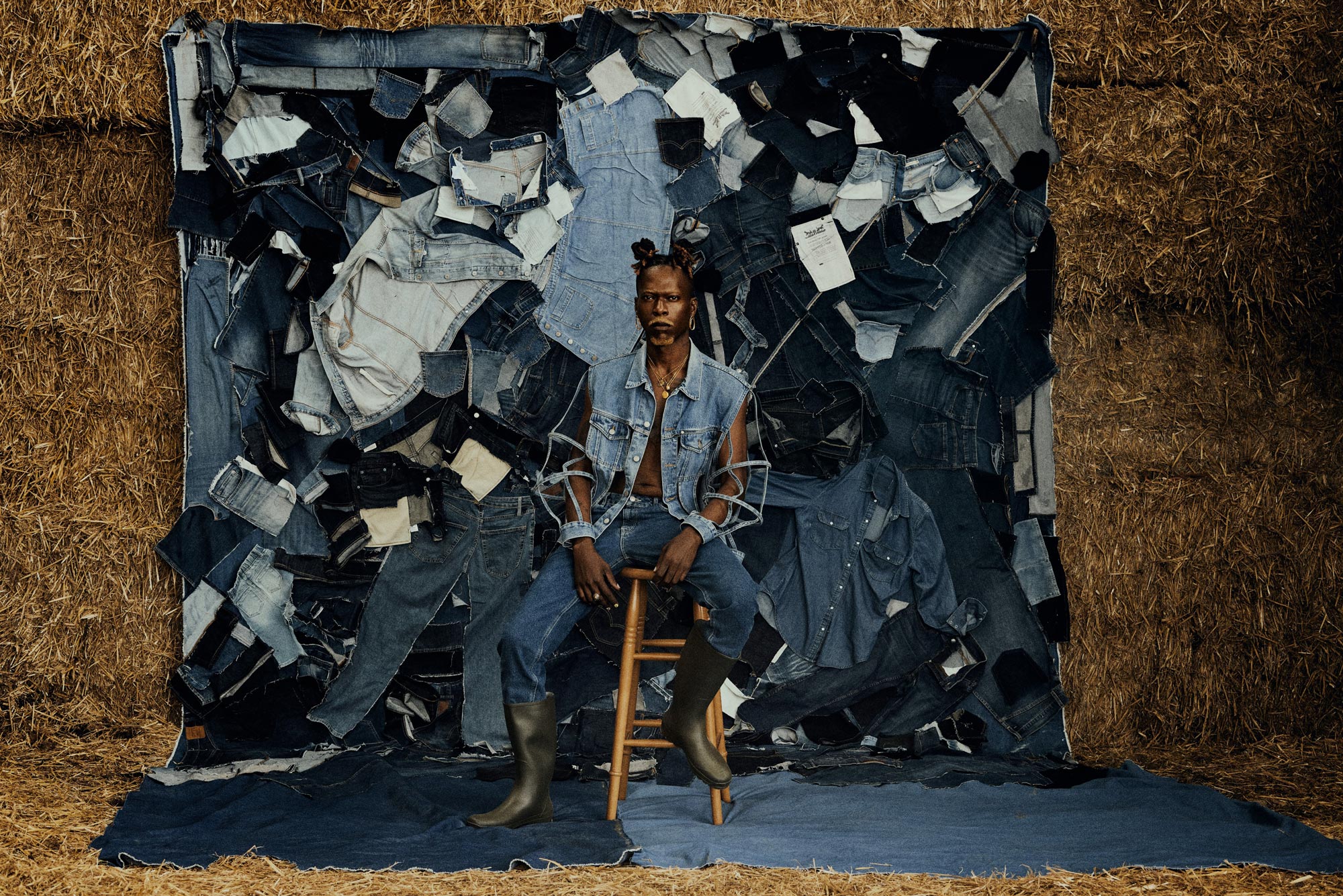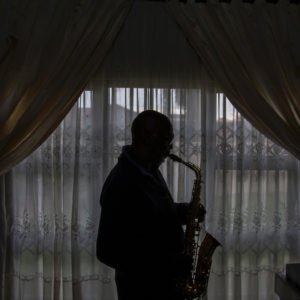Pierre Kwenders’ evolution will not be silent
The artist’s third album traverses a new musical terrain as he keeps on expanding his sound and working with friends from around the world.
Author:
30 June 2022

Listening to the three albums of Congolese-Canadian artist Pierre Kwenders, who is based in Montreal, they almost sound like they were made by different people. His debut album in 2014, Le Dernier Empereur Bantou, emerged as a lo-fi, electro-funk project that seamlessly stitched together influences from American hip-hop, Jamaican dancehall and Congolese rumba.
The follow-up in 2017, Makanda at the End of Space, the Beginning of Time, presented a futuristic, psychedelic dream world of song in which cosmic synths, rumba guitar, mbira and percussion featured heavily. And with his latest album, this year’s José Louis and the Paradox of Love, Kwender presents a stunning collection of dance floor-focused pop driven by hypnotic soukous and kizomba rhythms and new techno, jazz and R&B influences.
Stacked against each other these three albums make clear that Kwenders has traversed vast musical terrain in the past eight years. But the one element that has remained constant is his work’s dialogue with the past.
Related article:
For instance, his 2014 video for the single Sorry used edited snippets of recorded performance footage featuring Congolese rumba greats Tabu Ley Rochereau, Franco Luambo and Sam Mangwana to create the impression that they were singing Kwenders’ song. Similarly, his recent video for the single Kilimanjaro sees Kwenders’ face superimposed on the bodies of famous Black musicians, including James Brown, Fela Kuti, Jimi Hendrix and Prince.
Another example is the first single from José Louis and the Paradox of Love. Titled Papa Wemba, it pays homage to the famous Congolese star whose name it shares. And No No No pays tribute to Congolese stars Mbilia Bel and Tshala Muana by recontextualising their words in a new song.
Asked about this constant dialogue with the past, Kwenders says: “That’s how I choose to tell my story. I am only continuing the work they started.” Contrary to what most of the world believes, Africa has always produced greatness, he adds. “Papa Wemba, Fela Kuti, Brenda Fassie, Yvonne Chaka Chaka … we have to remember those who made it possible. It’s important to give credit to these artists who didn’t enjoy all the success that African artists enjoy today.”
As for his rapid progression across musical terrain, his acting in the 2018 feature film Les Salopes and finding time to do theatre work during the past eight years, Kwenders says: “That’s me, it’s the evolution of me. I am always trying to push myself. I don’t want to be put in one box.”
Partying with Moonshine
In the years it has taken Kwenders to release his three albums, he has also been a part of the Moonshine Collective, which began life as a monthly party in Montreal held on the first Saturday after the full moon. It focuses on music from the African continent and is known for its fusion of diverse genres like rumba, amapiano, batida, kuduro, Afrobeats and Afro-house. “It’s about time that people get to see what is coming out of Africa,” says Kwenders. “We have been doing this for years.”
In an attempt to take that message to the world, Moonshine has spread its wings beyond Montreal, hosting parties in cities like Los Angeles, Paris, Barcelona, Santiago and Kinshasa, and starting a label that puts out mixtapes. Kwenders says the Moonshine Collective has fed into his new album too, with the many friends he has made through the parties appearing on his new songs as he wrote and recorded them on the road.
Related article:
José Louis and the Paradox of Love features Portuguese deejay and producer Branko from the dance music project Buraka Som Sistema. Kwenders hooked up with him in Lisbon after witnessing some stellar deejay sets and they collaborated on the sexy strut of Heartbeat, which also features a magnificent contribution from French-Senegalese singer anaiis. Kwenders says the song draws influence from kizomba as well as Haitian rhythms. “It just has a sensuality to it,” he says.
Branko pops up again on the smooth R&B of Imparfait and the moody percussion- and organ-driven Sahara, while Win Butler and Régine Chassagne from Montreal’s Arcade Fire appear on L.E.S. (Liberté Égalité Sagacité), the almost 10-minute-long bleep-laden Congolese techno gem that opens the album.
“I actually met Win at the first ever Moonshine party we did,” recalls Kwenders. “He forgot his computer there and he thought he had lost it, so we took it back to him and became friends. He is also a deejay, so he has played at Moonshine a few times, and when Regine and he opened their bar called Agrikol in Montreal I had a residency there every Thursday.”
More collaborations
L.E.S. began life as a collaboration with Shabazz Palaces’ Tendai Maraire, the son of Zimbabwean mbira master Dumisani Maraire, and American producer King Britt, before Kwenders involved Butler and Chassagne too. Kwenders describes Maraire, who produced his second album, as a “big brother”. The two met after Kwenders had released his debut.
“I went to Seattle to meet him because I was a fan,” says Kwenders. “I wanted to work with him and I wanted to see what the chemistry was like. But as soon as I got there we clicked, we went into the studio to do one track and we said let’s do a whole album. I stayed for a week and then came back again for two more weeks to finish the album.”
Maraire is back for José Louis and the Paradox of Love, co-producing L.E.S. and producing two more songs, the infectious Papa Wemba and the final song, Church (Likambo). “He is a wonderful artist. He plays everything – keys, mbira, percussion – on top of producing the tracks,” says Kwenders.
Related article:
The decision to close the album with Church has a perfect circle aspect to it because the Africa Intshiyetu choir, which features on the song, was where Kwenders first found his calling in music. He left Kinshasa in 2001 at the age of 16 to emigrate with his mother to Montreal. In 2008, he was approached after mass on a Sunday to join the local Catholic Congolese choir. “Some guy just came up to me and asked, ‘Would you be interested in joining the choir?’” Kwenders recalls.
While he admits that his teenage years had been musically occupied with hip-hop stars like Biggie and Tupac, he says it wasn’t until he joined the Africa Intshiyetu choir that music became a big presence in his life. “Before that I was studying accounting,” he says. “I was planning on being an accountant.” He chuckles before adding: “Life chose otherwise.”



